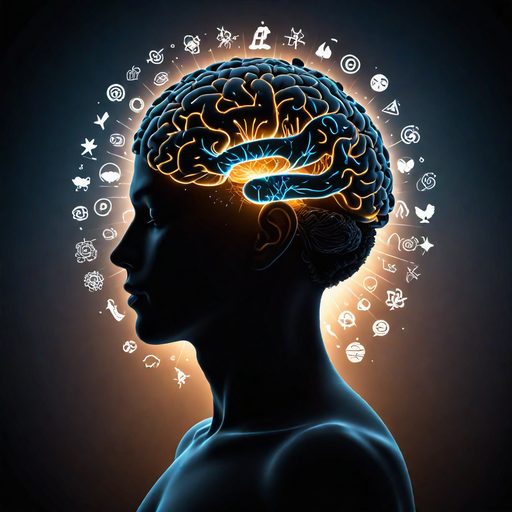
Consciousness: Beyond Science, a Mystery Unveiled
Recommended for Consciousness Studies
Consciousness – the elusive, enigmatic essence of our being. It’s the vibrant tapestry of our inner world, woven with colors, sounds, smells, and tastes.
Yet, despite the leaps and bounds of scientific progress, we still grapple with the fundamental question: How does the brain create this subjective experience?
This exploration will twist and turn, challenging our assumptions and revealing a mystery deeper than we ever imagined.
Think of it like this: we can explain how a car works, but why does driving it feel like freedom? That’s the hard problem. Science can map brain activity, but why do those signals create the feeling of being you?
Imagine a world where people look and act just like us, but have no inner life. Or a reality where pleasure feels like pain. Mind-bending, right? These thought experiments challenge everything we think we know about consciousness and reality.
This is the big question, the one that keeps us up at night. It’s like the ending of the movie”Memento” – just when you think you understand, a new layer of mystery unfolds. Could our consciousness be more than just a side effect of evolution? Could it be a clue to a deeper truth about the universe? If we're just biological machines, why do our thoughts and feelings seem so meaningful? Is there a hidden purpose to it all?
The Hard Problem: Beyond the Easy Answers
The “easy” problems of consciousness – explaining behavior, perception, and cognition – have yielded to scientific inquiry. We can map neural pathways, decipher brain signals, and even predict actions. But the “hard” problem persists: Why do these physical processes give rise to a rich inner life? Why aren’t we merely sophisticated robots, devoid of subjective experience?
Consider the thought experiment of “philosophical zombies” – beings identical to us in every way, except they lack consciousness. They react, perceive, and even communicate, but there’s no one home inside. This raises a chilling question: If consciousness isn’t essential for behavior, what is its purpose?
The roots of the hard problem, some argue, lie in the very foundations of modern science. Galileo, the father of modern science, deliberately excluded consciousness from his framework, focusing solely on measurable, objective phenomena.
Could this have created a blind spot in our understanding of the mind?
A Deeper Mystery: The Paradox of Pain-Pleasure Inverts
If we accept the possibility of philosophical zombies, we open a Pandora’s box of strange possibilities. Imagine “pain-pleasure inverts” – beings who experience pleasure as pain and vice versa. They scream in delight when injured, and eating causes them agony. While seemingly nonsensical, these inverts challenge our assumptions about the relationship between consciousness and behavior.
One might argue that evolution would weed out such irrational beings. But, as with many Nolan plot twists, the reality is more complex. Natural selection favors traits that enhance survival and reproduction. In a world of pain-pleasure inverts, their inverted experiences would be just as adaptive as ours.
Evolution, it seems, cannot fully explain the intricate harmony between our consciousness and behavior.
The puzzle of “psychophysical harmony” emerges – the perplexing alignment between our subjective experiences and our actions. If we’re merely physical beings in a meaningless universe, why should our thoughts and feelings correspond so neatly with our behavior?
The mystery of consciousness, it appears, is even more profound than we initially thought.
A New Paradigm: Teleological Laws and the Future of Mind
The traditional scientific view posits that the past determines the present. But could the future also play a role? Some philosophers propose “teleological laws” – principles that operate in reverse, drawing us towards future goals.
Could such laws explain the harmonious relationship between our consciousness and behavior?
This radical idea challenges our fundamental assumptions about the nature of reality. If teleological laws exist, it suggests a universe with inherent purpose, a universe where consciousness plays a central role. The mystery of consciousness, it seems, has the potential to revolutionize our understanding of the cosmos.
As we delve deeper into the mysteries of consciousness, we venture into uncharted territory, a landscape as perplexing as a Nolan dreamscape.
The answers we seek may lie beyond our current scientific and philosophical frameworks, requiring us to rethink our most fundamental assumptions about the nature of reality.
In the words of a fictional Nolan character, “The world is not what it seems.” The same could be said of consciousness. It’s a puzzle that continues to baffle and intrigue, a reminder of the vastness of the unknown and the endless possibilities of the human mind.
Related Stories
Watch a video
Your Brain’s Amazing Superpower: Consciousness! (Duration: 7 minutes)
Curious Times is a leading newspaper and website for kids. We publish daily global news aligned to your learning levels (also as per NEP 2020): Foundational, Preparatory (Primary), Middle and Senior. So, check out the News tab for this. We bring kids’ favourite Curious Times Weekly newspaper every weekend with top news, feature stories and kids’ contributions.
Curious Times News Program for Schools for FREE. Over 5,000 schools and teachers from all over the world have joined our programme so that students and teachers can get FREE Educative Newspaper. Here, kids can take part in world events and win prizes and certificates for free through their schools.
The following social media platforms allow you to communicate with us: Instagram.
0 (Please login to give a Curious Clap to your friend.)
